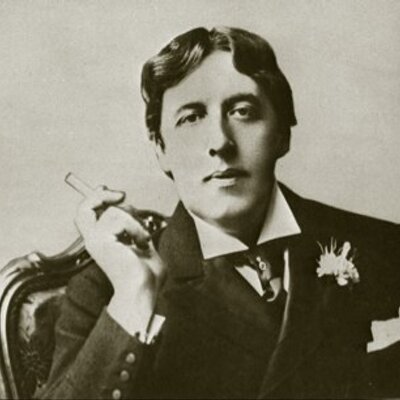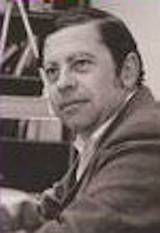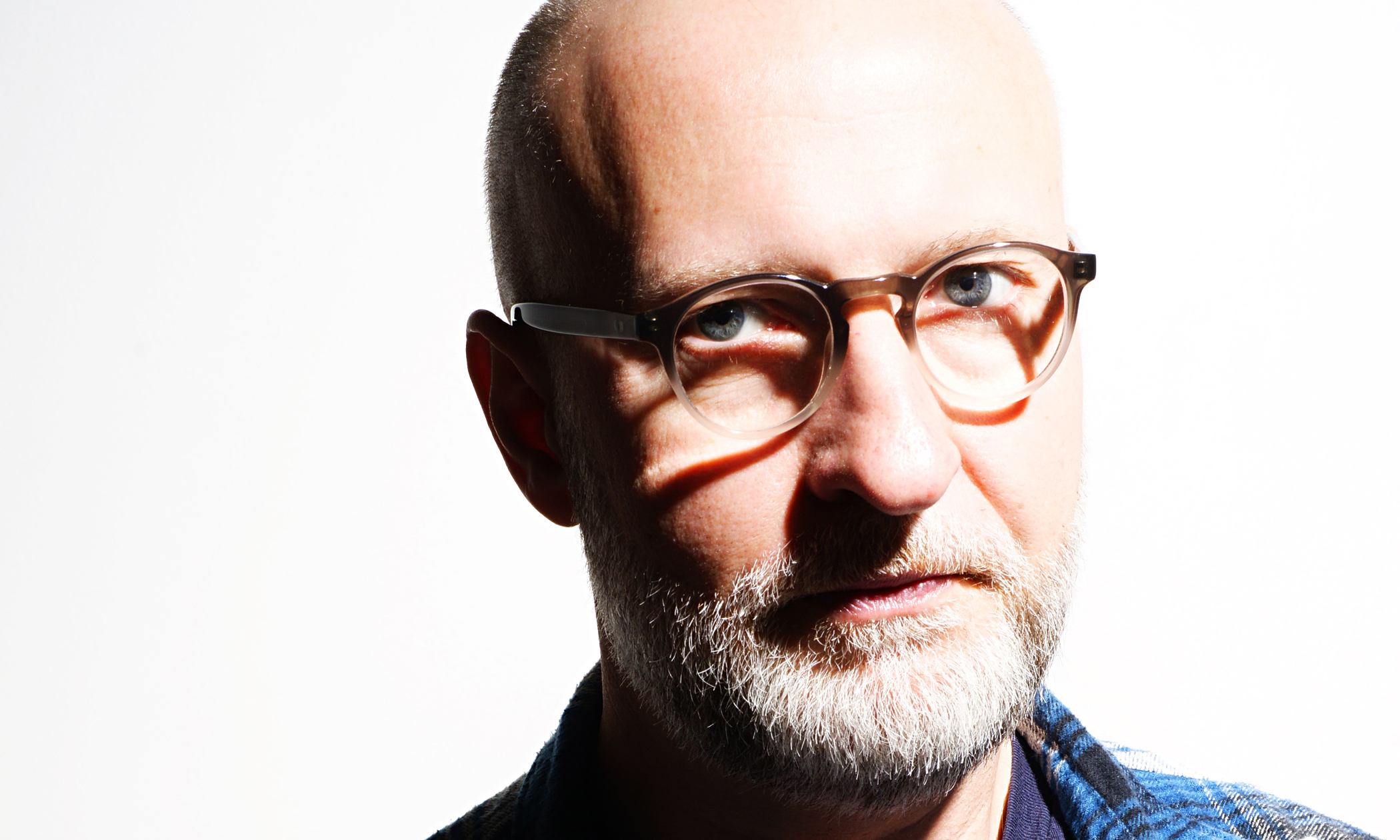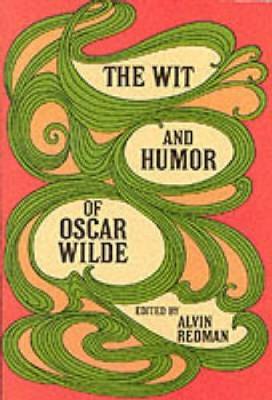|
Gay Wisdom for Daily Living brought to you by White Crane Institute ͏ ͏ ͏ ͏ ͏ ͏ ͏ ͏ ͏ ͏ ͏ ͏ ͏ ͏ ͏ ͏ ͏ ͏ ͏ ͏ ͏ ͏ ͏ ͏ ͏ ͏ ͏ ͏ ͏ ͏ ͏ ͏ ͏ ͏ ͏ ͏ ͏ ͏ ͏ ͏ ͏ ͏ ͏ ͏ ͏ ͏ ͏ ͏ ͏ ͏ ͏ ͏ ͏ ͏ ͏ ͏ ͏ ͏ ͏ ͏ ͏ ͏ ͏ ͏ ͏ ͏ ͏ ͏ ͏ ͏ ͏ ͏ ͏ ͏ ͏ ͏ ͏ ͏ ͏ ͏ ͏ ͏ ͏ ͏ ͏ ͏ ͏ ͏ ͏ ͏ ͏ ͏ ͏ ͏ ͏ ͏ ͏ ͏ ͏ ͏ ͏ ͏ ͏ ͏ ͏ ͏ ͏ ͏ ͏ ͏ ͏ ͏ ͏ ͏ ͏ ͏ ͏ ͏ ͏ ͏ ͏ ͏ ͏ ͏ ͏ ͏ ͏ ͏ ͏ ͏ ͏ ͏ ͏
|
|
||||
| This Day in Gay History | ||||
October 16Born 1854 - OSCAR WILDE, Irish writer born (d. 1900); irish playwright, novelist, poet, author of short stories known for his barbed wit, martyred Gay saint (ok....maybe not a saint...), he was one of the most successful playwrights of late Victorian London, and one of the greatest celebrities of his day. As the result of a famous trial, he suffered a dramatic downfall and was imprisoned for two years of hard labor after being convicted of the offence of gross indecency. Though Wilde's sexual orientation has variously been considered bisexual, homosexual, and paederastic, Wilde himself felt he belonged to a culture of male love inspired by the Greek paederastic tradition. In describing his own sexual identity, Wilde used the term Socratic. He may have had significant sexual relationships with (in chronological order) Frank Miles, Constance Lloyd (Wilde's wife), Robert Baldwin Ross, and Lord Alfred Douglas ("Bosie"). Wilde also had numerous sexual encounters with working-class male youths, who were often rent boys. Biographers generally believe Wilde was introduced to homosexuality in 1885 (the year after his wedding) by the 17-year-old Robert Baldwin Ross. Neil McKenna's biography The Secret Life of Oscar Wilde (2003) theorizes that Wilde was aware of his sexuality much earlier, from the moment of his first kiss with another boy at the age of 16. According to McKenna, after arriving at Oxford in 1874, Wilde tentatively explored his sexuality, discovering that he could feel passionate romantic love for "fair, slim" choirboys, but was more sexually drawn towards the swarthy young rough trade. By the late 1870s, Wilde was already preoccupied with the philosophy of same-sex love, and had befriended a group of Uranian (paederastic) poets and homosexual law reformers, becoming acquainted with the work of Gay rights pioneer Karl Heinrich Ulrichs. Wilde also met Walt Whitman in America in 1882, writing to a friend that there was "no doubt" about the great American poet's sexual orientation — "I have the kiss of Walt Whitman still on my lips," he boasted. He even lived with the society painter Frank Miles, who was a few years his senior and may have been his lover. However, writes McKenna, he was at one time unhappy with the direction of his sexual and romantic desires, and, hoping that marriage would cure him, he married Constance Lloyd in 1884. McKenna's account has been criticized by some reviewers who find it too speculative, although not necessarily implausible. Regardless of whether Wilde was still naïve when he first met Ross, Ross did play an important role in the development of Wilde's understanding of his own sexuality. Ross was aware of Wilde's poems before they met, and indeed had been beaten for reading them. He was also unmoved by the Victorian prohibition against homosexuality. By Richard Ellmann's account, Ross, "...so young and yet so knowing, was determined to seduce Wilde." Later, Ross boasted to Lord Alfred Douglas that he was "the first boy Oscar ever had" and there seems to have been much jealousy between them. Soon, Wilde entered a world of regular sex with youths such as servants and newsboys, in their mid to late teens, whom he would meet in homosexual bars or brothels. In Wilde's words, the relations were akin to "feasting with panthers", and he reveled in the risk: "the danger was half the excitement." In his public writings, Wilde's first celebration of romantic love between men and boys can be found in The Portrait of Mr. W. H. (1889), in which he propounds a theory that Shakespeare's sonnets were written out of the poet's love of Elizabethan boy actor "Willie Hughes". In the early summer of 1891 he was introduced by the poet Lionel Johnson to the 22-year-old Lord Alfred Douglas, an undergraduate at Oxford at the time. An intimate friendship immediately sprang up between the two, but it was not initially sexual, nor did the sexuality progress far when it did eventually take place. According to Douglas, speaking in his old age, for the first six months their relations remained on a purely intellectual and emotional level. Despite the fact that "from the second time he saw me, when he gave me a copy of Dorian Gray which I took with me to Oxford, he made overtures to me. It was not till I had known him for at least six months and after I had seen him over and over again and he had twice stayed with me in Oxford, that I gave in to him. I did with him and allowed him to do just what was done among boys at Winchester and Oxford... Sodomy never took place between us, nor was it attempted or dreamed of. Wilde treated me as an older one does a younger one at school." After Wilde realized that Douglas only consented in order to please him, as his instincts drew him not to men but to younger boys, Wilde permanently ceased his physical attentions. For a few years they lived together more or less openly in a number of locations. Wilde and some within his upper-class social group also began to speak about homosexual law reform, and their commitment to "The Cause" was formalized by the founding of a highly secretive organization called the Order of Chaeronea, of which Wilde was a member. A homosexual novel, Teleny or The Reverse of the Medal, written at about the same time and clandestinely published in 1893, has been attributed to Oscar Wilde, but was probably, in fact, a combined effort by a number of Wilde's friends, which Wilde edited. Wilde also periodically contributed to the Uranian literary journal The Chameleon. Lord Alfred's first mentor had been his cosmopolitan and effeminate grandfather Alfred Montgomery. His older brother Francis Douglas, Viscount Drumlanrig also had a (possibly homosexual) association with the Prime Minister Archibald Philip Primrose, 5th Earl of Rosebery, which ended on Francis's death in a shooting accident, a possible suicide. Lord Alfred's father John Sholto Douglas 9th Marquess of Queensberry came to believe his sons had been corrupted by older homosexuals, or as he phrased it in a letter, "Snob Queers like Rosebery". As he had attempted to do with Rosebery, Queensberry confronted Wilde and Lord Alfred on several occasions, but each time Wilde was able to mollify him. Divorced and spending wildly, Queensberry was known for his outspoken views and the boxing roughs who often accompanied him. He abhorred his younger son and plagued the boy with threats to cut him off if he did not stop idling his life away. Queensberry was determined to end the friendship with Wilde. Wilde was in full flow of rehearsal when Bosie returned from a diplomatic posting to Cairo, around the time Queensberry visited Wilde at his Tite Street home. He angrily pushed past Wilde's servant and entered the ground floor study, shouting obscenities and asking Wilde about his divorce (rumors were rife). Wilde became incensed, but it is said he calmly told his manservant that Queensberry was the most infamous brute in London, and that he was not to be shown into the house ever again. Despite the presence of a bodyguard, Wilde forced Queensberry to leave in no uncertain terms. On the opening night of The Importance of Being Earnest Queensberry further planned to insult and socially embarrass Wilde by throwing a bouquet of turnips. Wilde was tipped off, and Queensberry was barred from entering the theatre. Wilde took legal advice against him, and wished to prosecute, but Wilde's friends refused to give evidence against the Marquess and hence the case was dropped. Wilde and Bosie left London for a vacation in Monte Carlo and while away, on February 18,1895, the Marquess left his calling card, with an inscription accusing Wilde of posing as a "somdomite(sic)" at Wilde's Club. 1928 - MARY DALY, American feminist born (d: 2010); a radical feminist philosopher and theologian. Daly taught at Boston College, a Jesuit-run institution, for 33 years. In a widely reported case at the time, she was denied tenure, a development interpreted by many as a response to her book, The Church and the Second Sex.”After more than 1,500 students signed a petition supporting her – most were men, for the college did not admit women to its liberal arts division until 1970 – she was reinstated with tenure. Daly taught classes at Boston College from 1967 to 1999, including courses in theology, feminist ethics, and patriarchy. Daly's refusal to admit male students to some of her classes at Boston College also resulted in disciplinary action. While Daly justified her position on the grounds that their presence inhibited class discussion, Boston College consistently reprimanded Daly, claiming that her actions were in violation of title IX of federal law requiring the College to ensure that no person was excluded from an education program on the basis of sex, and of the University's own non-discrimination policy insisting that all courses be open to both male and female students. In 1998, a discrimination claim against the college by two male students was backed by the Center for Individual Rights, a conservative advocacy group. Following further reprimand, Daly absented herself from classes rather than admit the male students. Boston College removed her tenure rights, citing a verbal agreement by Daly to retire. She brought suit against the College disputing violation of her tenure rights and claiming she was forced out against her will, but her request for injunction was denied by Middlesex Superior Court, Judge Martha Sosman. An out-of-court settlement was reached in which Daly agreed that she had retired from her faculty position. However, Daly maintained that Boston College had wronged her students by depriving her of her right to teach freely. She documented her account of the events in the 2006 book Amazon Grace. Daly protested the commencement speech of Condoleeza Rice at Boston College and continued to speak on campuses around the United States as well as internationally. Her own description of herself was a “radical lesbian feminist” and “post-christian” considering most, if not all, organized religion to be irreparably patriarchal. 1930 - LAUD HUMPHREYS, American sociologist and writer, born (d: 1988); He was born as Robert Allan Humphreys and chose "Laud" as his first name when he was baptized again upon entering the Episcopal Church. He graduated from the Seabury-Western Episcopal Theological Seminary in 1955, and served as an Episcopal priest. He was married to a woman from 1960 to 1980. Humphreys eventually came out as a Gay man. He served as professor of sociology at Pitzer College in Claremont, California from 1972–1986 and died of lung cancer in 1988. Humphreys is best known for his published Ph.D. dissertation, Tearoom Trade (1970), an ethnographic study of anonymous male-male sexual encounters in public toilets (a practice known as "tea-rooming" in U.S. Gay slang and "cottaging" in British English). Humphreys asserted that the men participating in such activity came from diverse social backgrounds (like, say, the U.S. House of Representatives), had differing personal motives for seeking homosexual contact in such venues, and variously self-perceived as "straight," "bisexual," or "Gay." He received his Ph.D from Washington University in St. Louis. Because Humphreys was able to confirm that over 50% of his subjects were outwardly heterosexual men with unsuspecting wives at home, a primary thesis of Tearoom Trade is the incongruence between the private self and the social self for many of the men engaging in this form of sexual activity. Specifically, they put on a "breastplate of righteousness" (social and political conservatism) in an effort to conceal their deviant behavior and prevent being exposed as deviant. Humphreys tapped into a theme of incongruence between one's words and deeds that has become a primary methodological and theoretical concern in sociology throughout the 20th and 21st centuries. Humphreys' study has been criticized by sociologists on ethical grounds in that he observed acts of homosexuality by masquerading as a voyeur, "did not get his subjects’ consent, tracked down names and addresses through license plate numbers and interviewed the men in their homes in disguise and under false pretenses." It was later speculated that he participated in the sexual acts himself to gain entrance into this subculture. His biography was published in 2004, under the title Laud Humphreys: Prophet of Homosexuality and Sociology. 1960 - Hüsker Dü lead singer and guitarist, BOB MOULD (nee: Robert Arthur Mould) was born on this date. An American musician, principally known for his work as guitarist, vocalist and songwriter for alt-rock bands, Husker Du in the 1980s and Sugar in the 1990s. Forming in 1979, Hüsker Dü first gained notice as a puink rock group with a series of recordings on an independent label. In 1986, they signed with a major record label (Warner Bros. Records), but found only modest commercial success. However, they were later often cited as one of the key influences on 1990s alt-rock, including bands such as Nirvana and the Pixies. In the late 1980s, Hüsker Dü broke up acrimoniously amid members' drug abuse, personal problems, disputes over songwriting credits, musical direction, and the suicide of the band's manager, David Savoy. Mould and Grant Hart, the band's other songwriter and vocalist, still take occasional jabs at each other in the press, though the two briefly revisited their Hüsker Dü back catalog together at a 2004 benefit concert for an ailing friend, the late Karl Mueller of Soul Asylum. Though Mould's sexual orientation had previously been something of an open secret, he was outed in the early 1990s in an interview in the music magazine Spin; he came to terms with being out gay, even appearing in the movie Bear Nation, self-identifying as a bear. In April 2004, Mould was a co-organizer of the WEDRock benefit concert for Freedom to Marry. "WedRock" was a play on the word "wedlock". The event raised an estimated US$30,000. Mould also contributed the song "See a Little Light" to the 2006 album Wed-Rock: A Benefit for Freedom to Marry, an album to support in the legalization of marriage equality. Mould's song "Dog on Fire" is the theme song for The Daily Show, performed by They Might Be Giants. On December 19, 1996, Mould made a cameo appearance on The Daily Show Holiday Spectacular in an homage duet of "The Little Drummer Boy" with Mould playing the part of David Bowie to Craig Kilborn's “Big Crosby". The song "See a Little Light" has been used more than once in various television applications: It was used in the closing scene of the original un-aired test pilot episode of Buffy The Vampire Slayer. It became one of the principal theme songs for the HBO series The Mind of the Married. In 2001, Mould played lead guitar in the house band for the film of John Cameron Mitchell's Hedwig and the Angry Inch and on the film's soundtrack. In 2003, Mould also participated in a Hedwig tribute album, Wig in a Box, on which he covered the song "Nailed." Noteworthy Today's Gay Wisdom 2017 - The Wit of Oscar Wilde A cynic is a man who knows the price of everything but the value of nothing. A dreamer is one who can only find his way by moonlight, and his punishment is that he sees the dawn before the rest of the world. A gentleman is one who never hurts anyone's feelings unintentionally. A little sincerity is a dangerous thing, and a great deal of it is absolutely fatal. A man can be happy with any woman, as long as he does not love her. A man can't be too careful in the choice of his enemies. A man who does not think for himself does not think at all. A man's face is his autobiography. A woman's face is her work of fiction. A poet can survive everything but a misprint. A thing is not necessarily true because a man dies for it. A true friend stabs you in the front. | ||||
|
|8|O|8|O|8|O|8|O|8|O|8|O|8|O|8| Gay Wisdom for Daily Living from White Crane Institute "With the increasing commodification of gay news, views, and culture by powerful corporate interests, having a strong independent voice in our community is all the more important. White Crane is one of the last brave standouts in this bland new world... a triumph over the looming mediocrity of the mainstream Gay world." - Mark Thompson Exploring Gay Wisdom & Culture since 1989! |8|O|8|O|8|O|8|O|8|O|8|O|8|O|8| | ||||
|
|||||
|







